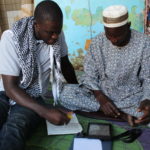This rapid literature review collates lessons from major evaluations and learning reviews from development, state-building and stabilisation programming in South Sudan since independence in 2011. Key findings include: Donors in South Sudan have had to transition from humanitarian to development aid and back and forth a number of times as conflict has broken out. Donors ...» more
Organisational learning
Doing research in fragile contexts
Research is critical to understanding and addressing the problems seen in fragile and conflict affected states (FCAS). The scale and impact of these problems is staggering: in 2016 about 1.8 billion people were living in fragile contexts but this is predicted to grow to 2.3 billion (28% of total world population) by 2030; poverty is also increasingly concentrated in fragile ...» more
Indicators and Methods for Assessing Entrepreneurship Training Programmes
Entrepreneurship training programmes are an important component of demand-side job creation strategies in developing countries (Fox and Kaul, 2017). Assessments of such programmes are constrained by variations in the programme content, as entrepreneurship training is often combined with grants, life-skills training, internships and mentorship. The targets of these programmes ...» more
Measuring results
How can the impact of governance and social development programmes be assessed with a view to improving their efficiency and effectiveness? What particular challenges are involved in monitoring and evaluating development interventions, and how can these be addressed? How can the ‘value for money’ of a particular intervention be determined? Monitoring and evaluation (M&E) ...» more


